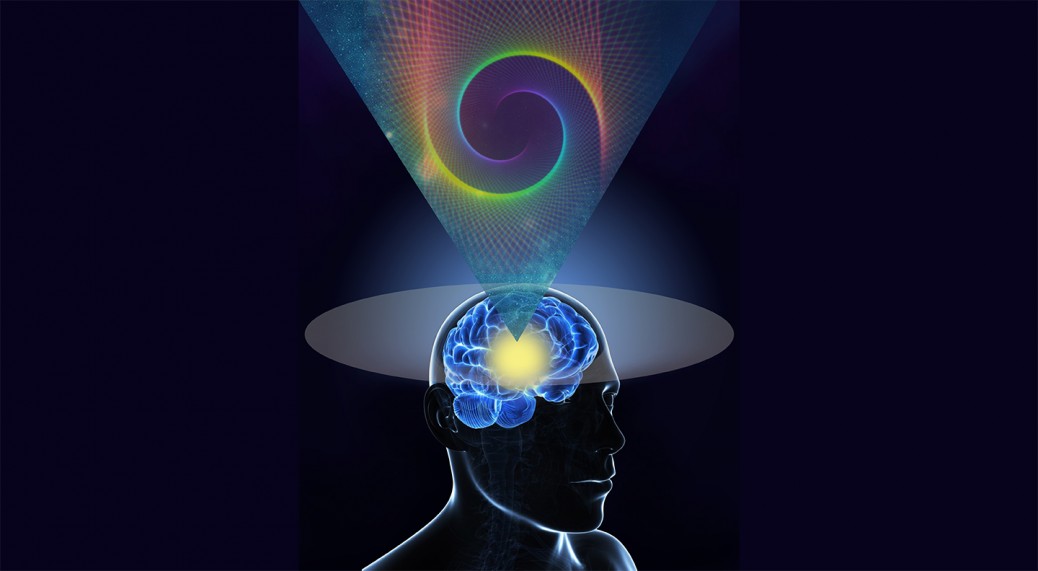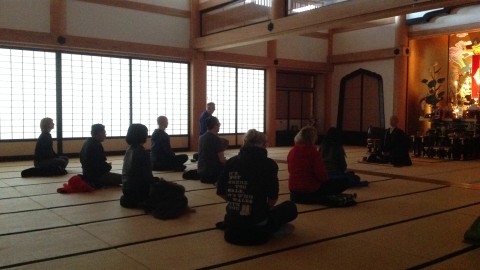When you are sympathetic you start loving the misery, not the man who is miserable. And if suddenly the man is cheered up and says, “Don’t bother,” you will feel shocked, because he never gave you a chance to be sympathetic and show him that how higher, superior and happy a being you are.
Don’t be miserable with somebody who is miserable. Help him to come out of it. Never make misery an object of love; don’t give any affection to misery, because if you give affection and you make it an object of love, you are opening a door for it. Sooner or later you will become miserable. Remain aloof. Compassion means remain aloof Extend your hand, remain aloof, help – don’t feel miserable, don’t feel happy, because both are the same. When you feel miserable on the surface with somebody’s misery, deep down runs the current of being happy. Both have to be dropped. Compassion will bring you tranquility of the mind.
Many people go to Osho; they are social reformers, revolutionaries, politicians, utopians, and they say, “How can you teach people meditation and silence when there is so much misery in the world?” They tell him, “This is selfish.” They would like him to teach people to be miserable with others who are miserable. They don’t know what they are saying but they feel very good – doing social work, social service, they feel very good. And if suddenly the world becomes a heaven, and God says, “Now everything will be okay,” you will find the social reformers and revolutionaries in absolute misery, because they will have nothing to do.
Khalil Gibran has written a small parable. In a city, in a big city, there was a dog who was a preacher and a missionary, and he preached to other dogs that “Stop barking. We waste almost ninety-nine percent of our energy in barking unnecessarily. That’s why we have not been evolving. Stop barking unnecessarily.”
But it is difficult for dogs to stop barking. That is an in-built process. Really they feel happy only when they bark. It is a catharsis. They feel silent when they have barked. So, they listened to the leader – the revolutionary, the utopian, who was thinking of kingdom of gods, kingdom of dogs, somewhere in the coming future, where every dog is reformed and has become religious – no barking, no fighting, everything is silent… a pacifist, must have been – that missionary.
But dogs are dogs. They will listen to him and then they will say, “You are a great man, and whatsoever you say is true. But we are helpless, poor dogs. We don’t understand such big things.” So all the dogs felt guilty because they couldn’t stop. And they believed in the message of the leader, and he was right: rationally, they could follow. But what to do with the bodies? The bodies are irrational. Whenever there will be a chance – a sannyasin walking – they will bark: a policeman, a postman… because they are against uniforms.
It was almost impossible for them, and they had settled it that “That dog is a great man, and we cannot follow. He is like an avatar – something from the other shore. So we will worship him, but how can we follow him? And that leader was always true to his word: he never barked. But one day everything failed. One night, dark night, the dogs decided that, “This great leader is always trying to convert us, and we never listen to him. At least once a year, on the birthday of the leader, we should keep complete fast: no barking – absolute silence – no matter how difficult. At least once a year we can do that,” they decided.
And on that night not a single dog barked. The leader went from this corner to that, this street to that, to watch, because wherever dogs will be barking, he will preach. He started feeling very miserable because nobody is barking; the whole night completely silent, as if no dog exists… He went many places, watched, and by midnight it was so impossible for him that he moved in a dark corner and barked!
The moment the other dogs heard that one has broken, they said, “Now there is no problem.” They didn’t know that the leader had done it. They thought one of them had broken the vow. But now it was impossible for them to contain; the whole city barked. The leader came out and he started preaching!
This will be the condition of your social revolution – aries, reformers, Gandhians, Marxists and others – all brands. They will be in such difficulty if the world is really changed. If the world fulfills really the utopia of their minds and imaginations, they will commit suicide or they will go mad. Or they will start preaching just opposite, just the contradictory, just the opposite whatsoever they are preaching now.
They go to Osho and they say, “How can you tell people to be silent when the world is in such a misery?” They think first the misery has to be removed, then people will be silent? No, if people are silent misery can be removed, because only silence can remove the misery. Misery is an attitude. It is less concerned with material conditions, more concerned with the inner mind, the inner consciousness. Even a poor man can be happy, and once he is happy many things start falling in line.
Soon he may not be a poor man, because how can you be poor when you are happy? When you are happy, the whole world participates with you. When you are unhappy, everything goes wrong. You create all around a situation which helps your unhappiness to be there. This is the dynamics of the mind. It is a self-defeating system. You feel miserable, then more misery attracts, towards you. When more misery attracts you say, “How can I be silent? So much misery there.” Then even more misery is attracted toward you. Then you say, “It is impossible now. And those who say they are happy must be telling lies: these Buddhas, Krishnas, they must be telling lies. These Patanjalis, they must be liars, because it is possible, so much misery?”
Then you are in a self-defeating system. You attract, and not only you attract for yourself: when one person is miserable, he helps others also to be miserable, because they are also fools like you. Seeing you in misery, they sympathize. When they sympathize, they become vulnerable. So it is just like that: one ill person infects the whole community.
Mulla Nasrudin’s doctor sent him a bill. It was too much. His child was ill: Nasrudin’s small son was ill. He phoned the doctor that “This is too much.” The doctor said, “But I had to come nine times to see your son, so that has to be accounted for.” Nasrudin said, “And don’t forget that my son infected the whole village, and you have been earning a lot. In fact you should pay me something.”
When one person is miserable, he infects. Misery is infectious just as happiness is infectious. And if you are vulnerable towards misery – as you are because you are always seeking unknowingly – your mind seeks misery, because with misery you feel sympathy; with happiness you feel jealous.
Mulla Nasrudin’s wife told Osho once that “If you are going to New Delhi – the winter is coming – you bring me a drop-dead coat.” I was surprised. I couldn’t follow what she meant. Osho told her anyway, “I don’t know much about coats, but I have never heard. What is a drop-dead coat?” She said, “You never heard?” and started laughing and said, “A drop-dead coat is a coat, when you put it on, neighbors drop dead!”
Unless others drop dead, you don’t feel alive. Unless others are in misery, you don’t feel happy. But how can you feel happy when others are unhappy, and how can you feel alive really when others are dead? We exist together. And sometimes you may be the cause of many people’s misery. Then you are earning a karma. You may not have directly hit them; you may not have been violent to them. Subtle is the law: You need not be a murderer, but if simply you infect people by your misery, you are participating in it; you are creating misery. And you are responsible for it, and you will have to pay for it. Very subtle is the mechanism!
Osho has a shared incident happen in his ashram – a sannyasin attacked Laxmi. You may not have observed that you all are responsible for it, because many of you have been feeling antagonism towards Laxmi. That sannyasin is just a victim, just the weakest link among you. He has expressed your antagonism, that’s all, and he was the weakest; he became the victim, and now you will feel that he is responsible. That’s not true. You participated. Subtle is the law!
How did you participate? Deep down, whenever somebody manages – and Laxmi is managing things around here… There are many situations in which you will feel antagonistic, in which she will have to say no to you, in which you will feel hurt – it cannot be avoided – in which you feel that enough attention is not being paid to you, in which you feel that you are treated as if you are nobody. Your ego feels hurt and you feel antagonism.
If many people feel antagonism towards a person, then the weakest amongst them will become the victim; he will do something. He was the craziest amongst you, that’s right. But he alone is not responsible. If you have ever felt antagonism towards Laxmi, that is part and you have earned a karma, and unless you become so subtly aware you cannot become enlightened. Things are very complicated.
Now in the West also, psychoanalysts have found that the whole family is responsible if one person goes mad – whole family! Now they think that the family has to be treated, not one person, because when one person goes mad that only shows that the whole family has inner tensions. This is the weakest of them all, so immediately he shows the whole thing, he becomes the expression of the whole family, and if you treat him it won’t help. In the hospital he may be okay: back home he will fall ill again because the whole family has inner tensions and this is the weakest.
Children suffer too much because of parents. They are fighting; they are always creating anxiety and tension around the house. The whole house exists not as a peaceful community, but as an inner war and conflict. The child is vulnerable more; the child starts behaving in eccentric ways – now you have an excuse that you are tense and worried because of the child. And now the father and mother both can be concerned with the child; they will take him to the psychoanalyst and the doctor, and they can forget their own conflict.
And this child becomes a cementing force, if he is ill; then they have to pay more attention to him. And now they have an excuse why they are worried and tense and in anguish – because the child is ill – and they don’t know just the reverse is the case… BECAUSE they are worried, tense in conflict. The child is innocent, tender; he can be affected immediately, he has no protection around him yet. And if the child becomes really healthy, the parents will be in more difficulty – because then there is no excuse.
This is a community; you live here as a family. Many tensions are bound to be there, be aware. Be alert about those tensions because your tensions can create a force. They can become accumulative, and suddenly somebody who is weak, vulnerable, simple, may become the shelter of the accumulated force, and then he reacts in a way. Then you all can throw the responsibility on him. But that is not true if you ever have felt any antagonism, you are part of it. And the same is true in the greater world also.
When Godase murdered Gandhi, Osho never said that Godase is responsible. He was the weakest link; that is true. But the whole Hindu mind was responsible, deep currents of Hindu antagonism against Gandhi. The feeling that he is for Moslems, Mohammedans, was accumulating. This is an actual phenomenon: antagonism becomes accumulated. Just like a cloud, it hovers, and then somewhere a weak heart, a very unprotected man, becomes the victim. The cloud gets roots into him and then the explosion. And then everybody is freed: Godase is responsible – murdering Gandhi – so you can kill Godase and be finished. Then the whole country moves in the same way, and the Hindu mind remains the same: no change. Subtle is the law!
Always find the dynamics of mind. Only then you will be transformed; otherwise not.
Tags: Patanjali Yoga Sutra 10 Dynamics Of Mind










